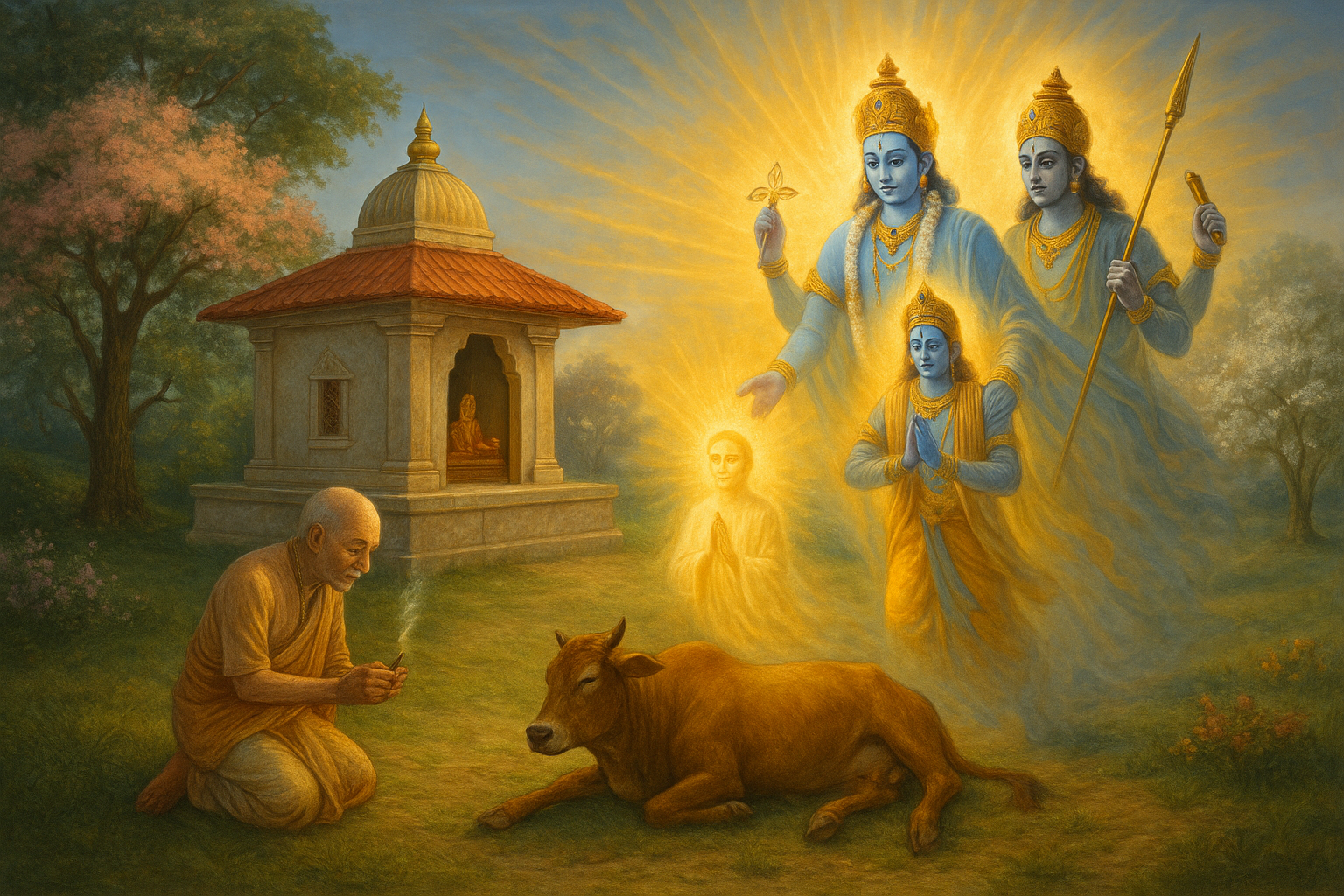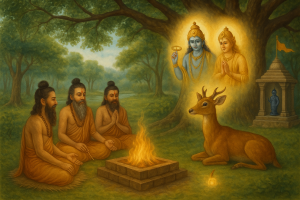The Peaceful Temple and Its Surroundings
In a remote countryside surrounded by fields and flowering trees, there stood a simple yet sacred temple of Lord Viṣṇu. Though not large or grand, the temple was known among villagers as a place of deep peace, where the name of the Lord was always chanted and the sound of temple bells greeted the dawn.
A few elderly brāhmaṇas maintained the worship there, offering lamps, flowers, and rice to the deity every day. Devotees would come to sit under the trees, chant, or simply rest near the sanctum.
The Old Bull’s Final Journey
One day, an old bull, once used for ploughing but now too weak to work, wandered near the temple. It had served its master loyally for years but had been abandoned in its old age. With faltering steps and labored breath, the bull slowly approached the temple courtyard and lay down near the outer wall, where the sun offered some warmth.
Unaware of its surroundings in any religious sense, the bull simply rested there for hours—hearing, unknowingly, the chanting of mantras, the ringing of bells, and the sound of Hari-nāma from within the temple. As the sun set and the night crept in, the bull quietly breathed its last, unnoticed by the world.
The Descent of Divine Grace
The next morning, the temple priest found the bull’s lifeless body near the wall and immediately lit incense and chanted prayers for the soul. At that moment, a wondrous event took place: the sky lit with divine brilliance, and Viṣṇudūtas descended, bearing their effulgent forms and weapons.
They addressed the soul of the bull:
“This soul, though in the form of an animal, has left its body near the Lord’s temple, where the holy name is chanted constantly. By the association of sacred sound and the proximity of the temple, all sins have been burned. This jīva is now purified and eligible for eternal service to the Lord.”
The soul of the bull arose, now freed of all material coverings, and shone with a radiant spiritual form. The Viṣṇudūtas lovingly guided it toward Vaikuṇṭha, where there is no more birth or death—only blissful service at the Lord’s lotus feet.
Lessons to Be Learned:
- Dying near a temple, especially where the Lord’s name is chanted, purifies the soul—regardless of the body it occupies.
- The sound of Hari-nāma, even when not consciously heard, uplifts and liberates the soul.
- The Lord’s compassion extends to all living beings, especially those who take shelter near Him at the end of life.
- As stated in śāstra: “anta-kāle ca mām eva smaran muktvā kalevaram…”
“At the time of death, one who remembers Me comes to Me.” (Bhagavad-gītā 8.5)
Origin of the Story: Padma Purāṇa – Stories section illustrating the power of dying in proximity to the Lord’s temple and the sound of His holy name.



